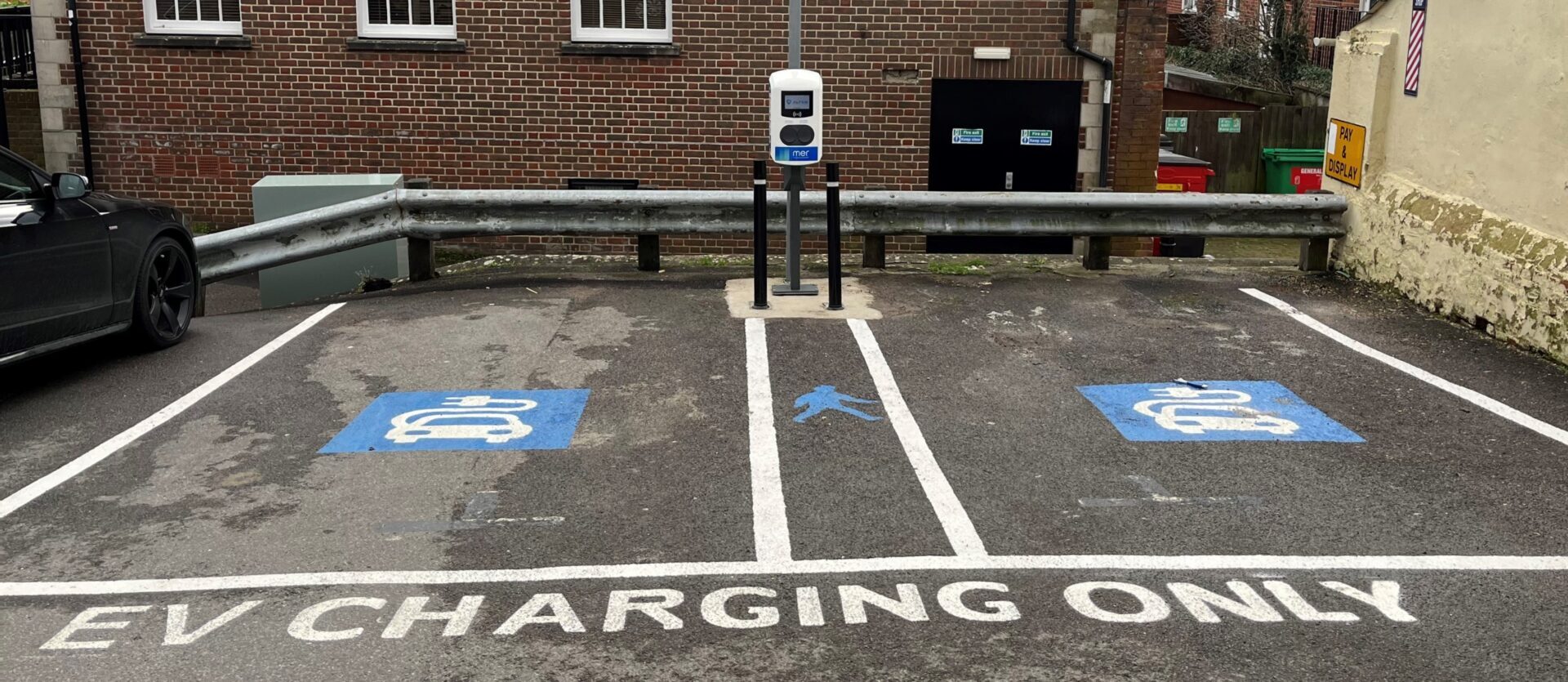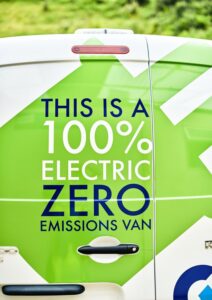Dorset Council has announced ambitious plans to get electric vehicle (EV) chargepoints into towns and villages across the Dorset Council area, as part of its new Charging Ahead programme.
By 2030, the programme aims to get 80 per cent of Dorset households within a 10-minute walk of a public chargepoint.
To date, the focus has been on putting electric vehicle chargers into the county’s main towns, with nearly 100 chargers installed by the council and installation partner, Joju Charging, in the past three years.

The Charging Ahead programme will now concentrate on getting chargepoints into Dorset’s more rural areas and supporting those households that aren’t able to charge vehicles at home.
The plans, which will play a key part in preparing the county for the government’s 2050 net-zero target, will see as many as 200 electric vehicle charge points installed in communities across the Dorset Council area over the next three years.
Funding for the new charge points will mostly come from the government’s local electric vehicle infrastructure (LEVI) scheme and Mer, a European EV charging company, with an additional contribution from the council.
 According to Ofgem, it’s expected that one in four UK households will buy an electric vehicle in the next five years, and by 2030 electric vehicles will make up nearly a third of all vehicles on UK roads.
According to Ofgem, it’s expected that one in four UK households will buy an electric vehicle in the next five years, and by 2030 electric vehicles will make up nearly a third of all vehicles on UK roads.
To meet this growing demand and prepare for the upcoming ban on the sale of new petrol and diesel cars and vans, it’s anticipated that Dorset will need more than 2,500 public charge points by 2030.
Councillor Ray Bryan, Dorset Council’s Portfolio Holder for Highways, Travel and Environment, said:
“We are delighted to have been selected as one of 20 pilot councils in the UK to benefit from government funding to improve local electric vehicle infrastructure.
“As more people switch to electric vehicles, a reliable and accessible public charging network will be crucial in attracting visitors to Dorset as well as supporting the businesses and residents that are already here.
“This funding provides a real opportunity to make sure Dorset’s communities are fully connected to the network and offers charging options for those who don’t have access to off-street parking.”
Karl Anders, Managing Director at Mer UK, said:
“Local authorities are a core part of the effort to enable and encourage the electric mobility transition across the UK. Mer is pleased to be working with Dorset Council to help make electric vehicle driving more accessible for its residents and visitors through our charging solutions.”
The council will be working with local communities, landowners and businesses to identify the best locations to install the new chargepoints.
If your community could benefit from a chargepoint, you can suggest possible locations by submitting an online form on the council’s website or by contacting your local town or parish council.
Discussions are also taking place between the council and Mer to develop ‘charging hubs’ in key tourist hotspots in Dorset to help meet the charging needs of visitors.
For more information on electric vehicle charging in Dorset, including where you can find chargepoints, how to use them, and how much they cost, visit the Dorset Council website.


This is not good news and the article fails to mention how much DC’s contribution to this badly thought through project is. We do not want our rural areas littered with these unnecessary public charging points. Sales of EVs are falling as people realise that they are not the utopian solution they have been brainwashed into believing that they are. I do not understand why local government is being asked to fund the rollout of these charging points. I don’t recall local government paying for petrol stations to be established!
The electric vehicle charging points that are being installed in Dorset towns are low charging rate ie 7kwh and 11ish mean its user cannot get a full charge in an allocated time. Also chargers are being located in car parks when people charge out of parking payment time and leaving vehicles overnight preventing others from using them.
The chargepoints installed will be a mix of fast 22kW, rapid 50kW and ultra-rapid 150kW chargers. This is to suit different users. Fast chargers offer a lower cost option but charging takes longer so suits users who live near by. Rapid chargers are faster and maybe more convenient for some but they tend to be more expensive. We want EV drivers to have a choice.
It is all very well installing community charge points but if you can only use them via a Smartphone App you are disenfranchising a lot of people, especially as the mobile connections in Dorset are very poor.
When will Mer accept credit card payments like most of the community car parks?
All Mer rapid and ultra rapid chargers accept credit/debit card payments. From April 2023 the Office of Zero Emission Vehicles have stipulated that all chargepoints over 7kW (fast chargers) should accept credit/debit card payments which is great for usability but this requirement may come at a cost which invariably could end up being passed on to customers by the chargepoint operators.
Strongly agree that many more charge points are needed but they should be the faster ones 50KWh and above. It seems to me that mostly slow chargers are being provided which will seriously limit the number of people who can use them and are virtually useless for tourists. I also agree that charge point providers should only be selected if they offer easy simple card payment, without the need for RFIDs or having to log in or use an app. Such systems are universally prone to failure especially in rural areas where the phone signal may not be as good as it should be! Additionally the Council should have procedures in place that check on the availability of chargers and how effective they are. Too many providers fail to maintain or service their chargers offering a poor service.
Rapid chargers are great but they cost more to use. If you don’t have a home charger or access to off-street parking then maybe a lower cost charging option close to where you live, where you can leave your car over night say, is a good thing? The Mer network of chargers is one of the most reliable out there and is one of the reasons why the council use them.